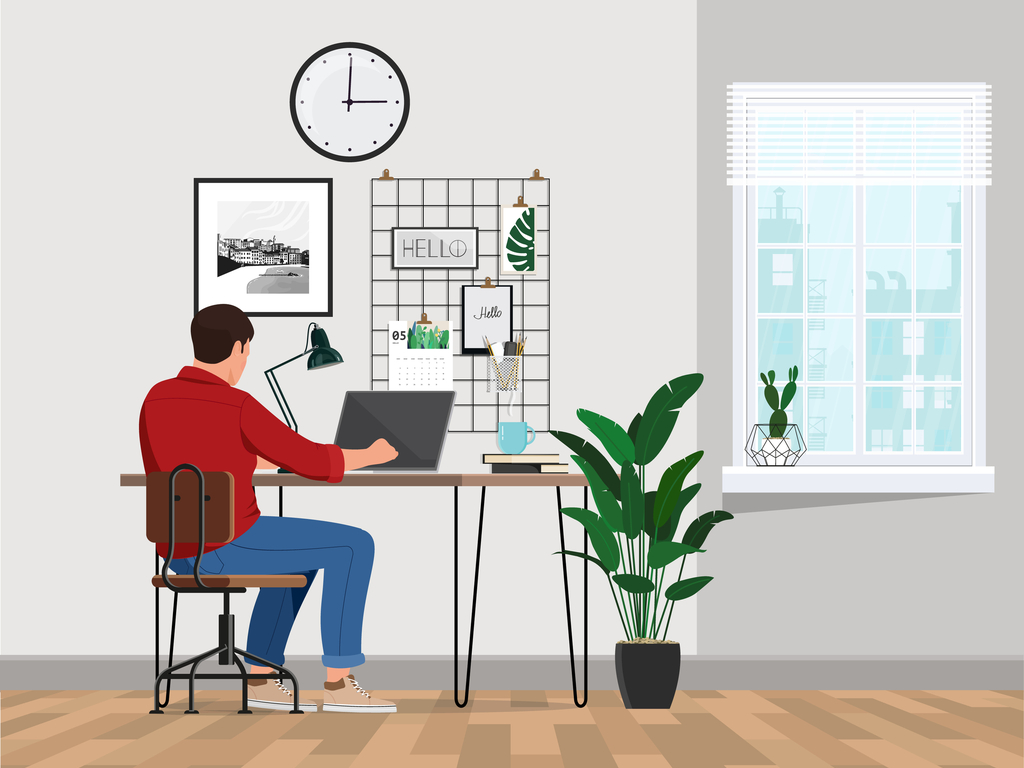(12 August 2020, Hong Kong) Employees across Asia Pacific have adapted to extensive work from home arrangements, but most are eager to return to the office. Throughout the COVID-19 pandemic across Asia Pacific, an average of 68% of employees surveyed regionally worked from home. According to JLL, 61% of the same respondents working remotely said they missed going to the office and would favour a hybrid model combining more flexible work arrangements in the future, while Hong Kong, along with Japanese and Mainland China employees missed the personal/professional distinction most.

JLL’s new Asia Pacific report Home and away: the new hybrid workplace? argues that employees consistently believed that while they enjoy the freedom of working from home, they miss the human interaction and face-to-face collaboration that working in a professional office environment provides.
Millennials said they missed the office more than other age groups at 66% and highlighted the office experience’s benefits: human interactions, professional environment, and a place for focused work. Furthermore, 81% of Millennials strongly agreed that they felt technology ready, and 52% said they were more productive working from home. However, some could not afford accommodation with space and amenities vital for successful homeworking.
“Employees across Asia Pacific have successfully transitioned to remote working, but our interactions also suggest that many now crave the office environment’s cultural and human experience. It is becoming clearer that the office is here to stay, but corporations will need to reimagine the workplace to cater for a greater acceptance of remote working across Asia Pacific,” says Anthony Couse, CEO, Asia Pacific, JLL.
The evolving expectations of employees for hybrid work arrangements will have clear implications for corporate real estate in establishing a shared purpose and culture, says JLL. Respondents surveyed revealed that 29% of employees in the region are very confident about their company’s future, and 27% were very confident in their own prospects. Millennials were even more optimistic on both counts (35% and 34%, respectively).
As a result, respondents believe that employers have a responsibility to foster this sense of optimism, whether their teams are working from home or in the office.
Key considerations for employers exploring a hybrid model include:
- Higher acceptance of remote working will lead to a more distributed and diverse workforce but this will come with its own challenges on productivity and efficiency. Office space will continue to hold its importance, in most instances as the optimal working environment.
- The office provides a culture that can’t be replicated via remote working and serves as a social hub for employees to connect on common goals, purpose and vision. Repurposed or redesigned work areas will be required to provide infrastructure for collaboration among the split teams of remote and on-site staff.
- Work from home saw many employees enjoy greater flexibility and control in their personal and professional lives. Corporates will have to redefine their real estate footprint, and operate with home offices, co- working places, satellite offices and the office HQ will all have to co-exist – leading to a truly hybrid office model.
“Offices will continue to play a central role in defining company culture, creating a shared purpose, and meeting employee needs for personal and professional fulfilment. However, COVID-19 will impact how the office looks and feels, as hybrid models comprising flexible work arrangements become mainstream,” says Roddy Allan, Chief Research Officer, Asia Pacific, JLL.
Nelson Wong, Head of Research at JLL in Greater China, says,” Office life is particularly important in Asia Pacific, where employees generally live in smaller spaces. Employees have said that the office remains the core space in which their professional needs are met. Our survey found that employees in Hong Kong, the mainland China and Japan missed the personal/professional distinction most. However, how the office looks and feels will be forever changed post-COVID-19. Corporates planning to expand their remote working programmes need to evaluate where the office fits in the employee experience model and demands. The office is here to stay, but so is a greater acceptance of remote working.”
JLL’s Home and away: the new hybrid workplace? was based on the views of 1,500 employees from five countries across Asia Pacific – Australia, China, India, Japan and Singapore. Respondents were asked about the impact of extended periods of remote work, access to technology, and which changes in professional behaviour will become permanent.











